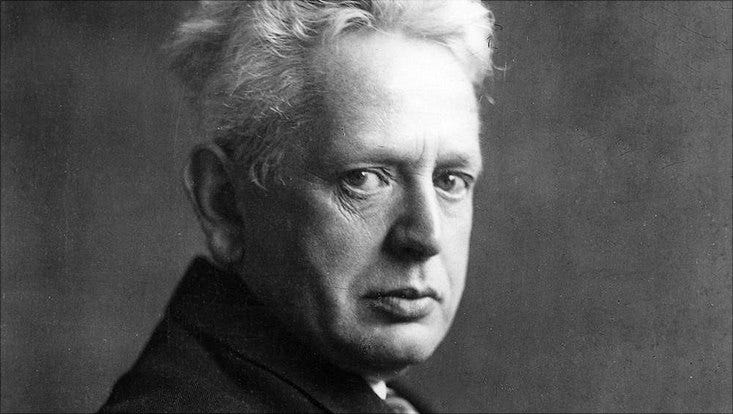How Symbols and Myth Create Our Political Reality (The Myth of the State)
Have you ever felt a chill down your spine when hearing a politician’s speech, a sense that something deeper than logic was at play? Perhaps a stirring of patriotism, a flash of anger, or a surge of unwavering belief? If so, you've touched the realm of political myth, a powerful force that shapes our understanding of the world and our place in it. It's a realm where symbols, narratives, and emotions intertwine to create a compelling, often deceptive, reality. But how does this happen? And more importantly, how can we recognize and resist its insidious influence?
The Seeds of Myth: From Reason to Ritual
To understand the power of political myth, we must delve into the work of the brilliant philosopher Ernst Cassirer. Witnessing the rise of Nazi Germany, Cassirer recognized a chilling truth: modern politics was increasingly driven by irrational narratives and powerful symbols, not reasoned debate or factual evidence. His seminal work, "The Myth of the State," offers a crucial lens through which to understand this phenomenon.
Cassirer argued that mythic thought operates differently than scientific or logical reasoning. Instead of striving for nuanced understanding, myth simplifies, often reducing complex issues to stark binaries: good vs. evil, us vs. them, order vs. chaos. This simplification allows for a direct appeal to emotions, bypassing the critical faculties of the mind. Sound familiar? It should.
“Myth is not a collection of arbitrary tales, but a systematic form of thought, a specific way of perceiving and interpreting the world." - Ernst Cassirer
The Mechanics of Manipulation: Symbols, Narratives, and Repetition
So, how exactly does myth work its magic? Cassirer identified several key mechanisms:
Simplification: Complex issues are reduced to easily digestible narratives.
Symbolism: Potent symbols, like flags, anthems, and charismatic leaders, evoke strong emotional responses.
Repetition and Ritual: Constant reinforcement through speeches, rallies, and media coverage solidifies the myth in the public consciousness.
Think about the way political campaigns often utilize these elements. A flag waving in the wind, a stirring national anthem, a leader promising to "make the nation great again." These aren’t just superficial tactics; they are deliberate attempts to bypass rational thought and tap into deeper, more primal emotions. The goal? To create a shared sense of identity, a collective will, that can be easily manipulated.
The Digital Age: A Fertile Ground for Myth
The digital age has become a perfect breeding ground for political myth. Social media algorithms, designed to maximize engagement, often prioritize emotionally charged content, regardless of its accuracy. This creates echo chambers, reinforcing existing beliefs and making it increasingly difficult to encounter opposing viewpoints. Misinformation and propaganda spread like wildfire, further eroding the foundations of truth.
This is precisely what Cassirer warned against! This is why we need to understand his insights, particularly regarding the dangerous power of simplifying narratives.
Want a deeper dive? Check out this video exploring Cassirer's powerful analysis:
Recognizing the Myth: Tools for Critical Thought
So, how can we protect ourselves from being swept away by the tide of political myth? By understanding its mechanics, as laid out by Cassirer, we gain essential tools for critical thinking. Here’s how:
Question the narrative: Ask yourself, what are the underlying assumptions? Who benefits from this story?
Identify the symbols: What emotions are they designed to evoke? What are they really representing?
Seek out diverse perspectives: Don't rely solely on information from a single source. Challenge your own biases.
Practice media literacy: Understand how information is presented and who controls its dissemination.
The most important tool, however, is a commitment to critical thinking and a willingness to question everything.
Unlock deeper insights with a 10% discount on the annual plan.
Support thoughtful analysis and join a growing community of readers committed to understanding the world through philosophy and reason.
Reclaiming Reality: The Power of Critical Thought
The battle for our minds is ongoing. Political myths will continue to be deployed, amplified by technology, and fueled by human emotion. But by understanding the mechanics of myth, by embracing critical thinking, and by constantly questioning the narratives we are presented with, we can reclaim our capacity for rational thought and begin to build a more just and truthful society.
This exploration of Cassirer’s ideas is not just historical; it is a vital guide for navigating the symbolic landscape of modern politics. What political myths do you see operating today? Share your thoughts in the comments! And consider subscribing for more discussions on philosophy, history, and critical thinking.




It's simply the 'sounds & symbols' nature of language. No big mystery. Definitely not Rocket Science. While Goat worshipping rationalizing to avoid the simple truth of Self-ignorance continues unabated. Creating Scapegoating trope terms like God & Consciousness to Self-sooth and carry on Pretending that we are truly Conscious Being😅